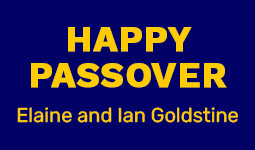So much for the rhetoric from some on the Coalition side that the latest Israeli election would be “stolen” if it does not get its current way on judicial reform. The Coalition has no clear voters mandate on judicial reform – and certainly not for its currently one-sided proposals.
Now let us consider what majority in the Knesset constitutes sufficiently “broad agreement” for constitutional change.
A simple majority of those MKs who vote on a proposal member? Nowhere near good enough. This very point was often made – rightly – by intellectuals in the judicial reform camp when they critiqued earlier constitutional developments in Israel. Some basic laws were passed with fewer than half 61 votes – that is, with less than half of MKs eligible to vote – and that is an abiding legitimacy problem.
How about a “yes” vote from a simple majority of the Knesset – 61 votes? Look around the democratic world. There are very few places where a simple “yes” vote from a single legislative chamber – once – is sufficient for major constitutional changes.
So, what higher level of support should be required? Her is one interesting proposal that has been made in Israel: you must pass the law in two successive Knessets. That way, an election intervenes, the people can speak to the issue, and the law has not been passed in haste, but only after extensive opportunities for deliberation.
President Herzog’s “People’s Plan” would require a constitutional proposal to be supported by either: 80 voters out of 120 in one Knesset, or by two successive Knessets, including 70 voters in the final vote.
All of that seems reasonable. The number 80 is the same supermajority that Minister Levin – and the Knesset – endorsed for territorial concessions. It represents 2/3 of the Knesset, and 2/3 is often used in parliamentary bodies as the definition of a supermajority.
The number 70 means a majority that is significantly, but not drastically, beyond the size of a typical governing coalition.
If you look at the composition of the current Knesset, there are many ways to achieve at least 70 votes that are mathematically possible, and politically practicable if a reasonable proposal is put up for a vote – and if politicians wish to be reasonable in evaluating it.
It is considerably harder – in current circumstances, and in general – to get to 80 votes – but by no means impossible. The welcoming response of opposition parties to the People’s Plan suggests that 80 votes on specific reforms are well within reach if the Coalition also wishes to join opposition parties in working within that framework.
(Note: a lower level of support – say 70 yes votes rather than 80 in one Knesset- might perhaps be more indicative of “general agreement” if the vote is a “free one”, in which all MKs can vote their conscience).
I would suggest the targets set out in the “People’s Plan” should be the least level of agreement that all sides – including the Coalition – should aim for.
If the Coalition believes the other parties are being unreasonable, it should not proceed unilaterally. Rather, it should call a referendum.
Constitutions evolve through conventions – widely accepted practices of politicians – and not only by formal amendments. President Herzog has set a precedent for using the office of the President as a forum to seek wide agreement on constitutional proposals. President Herzog has shown that on constitutional reform, the office of the President can be an excellent forum for parties to seek broad agreement – and for providing specific proposals that can be the focus of negotiations.
Such a role of the President serves many useful purposes. It helps to distinguish the constitutional track for ordinary legislation. It helps to promote “wide agreement” and to distill different ideas into potentially widely-agreed outcomes. It adds a needed deliberative and moderating element in an Israeli system that does not have a bicameral legislature, does not have federalism, and does not strictly separate the legislative and executive branches.
Aryeh Deri the other day suggested that reform might be more achievable if it proceeds step-by-step. There is some good sense to that. He seems to contemplate, however, the continued use of a “brinksmanship” model – whereby the Coalition keeps threatening to proceed unilaterally, rather than obtaining broad agreement.
The threat of unilateral action is all too clever as a negotiating lever. It creates an intense feeling among many – voters, potential immigrants, investors, key international supporters of Israel – that Israeli democracy is at risk. The Coalition’s brinkmanship to date has already needlessly cost Israel far too much in internal solidarity and external credibility. A reasonable lever for a governing Coalition should instead be a democratic one: “If we elected politicians cannot broadly agree, let the people decide in a referendum.”
I would suggest that all parties agree to use the People’s Plan as the framework for negotiations over the next years and agree in the near future on which specific issue will be dealt with next.
I have also suggested in an earlier piece here at the Times of Israel that judicial selection could be the first area where the parties can reach a broadly-supported agreement on a specific reform.
The People’s Plan proposals on judicial selection are eminently reasonable. They achieve everything the Coalition could reasonably ask for ending a veto for sitting judges, providing a strong, but not controlling voice, for the Coalition, and promoting philosophical and demographic diversity on the Court.
Broad agreement on the judicial selections, on the People’s Plan basis, can almost certainly be achieved if there is good faith among the key players. At last, there would be a good start to restoring the fabric of Israeli society and placing Israeli constitutionalism as a whole on more solid ground.
There would only be winners.


















































































































